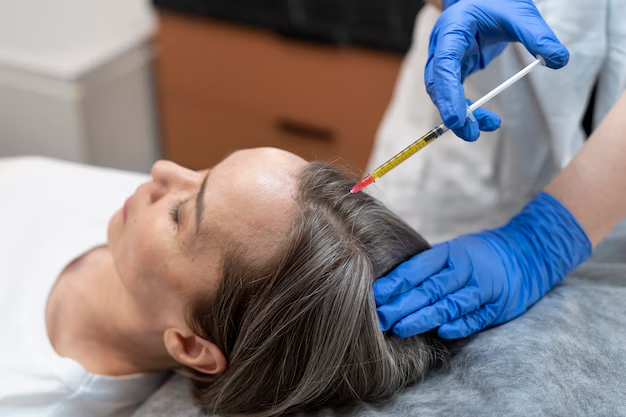Scalp Treatments :- Your scalp is an integral component of overall health and wellbeing, and deserves equal consideration as the rest of your body. Proper care of your scalp is vital in keeping both hair and skin in good health; this comprehensive guide will equip you with all of the information required to keep it that way – from basic hygiene practices through advanced treatments and tips.
Learn the skills necessary to recognize scalp issues, prevent and treat them effectively, and maintain a beautiful and strong scalp. Knowledge and care can enable you to take control of your health, ensuring that both hair and skin remain beautiful and strong.
Scalp Treatments
1) Basic Scalp Hygiene
To keep a healthy scalp, practicing good hygiene is of utmost importance. For optimal results, regularly wash your hair using shampoo and conditioner as well as massaging the scalp with massage for best results. Cleaning hair removes dirt and excess oil as well as stimulating blood flow to the area for increased wellness of the scalp.
Shampoo and conditioner are vital in cleansing away bacteria that could lead to infections and excess oils that clog the pores of your scalp, leading to acne or other skin conditions. For optimal results, shampoo your hair after any strenuous workout that leaves both the hair and scalp sweaty; massaging your scalp regularly will promote healthier hair growth.
2) Common Scalp Problems
To get the best care for your scalp, it is crucial that you understand its normal conditions and any abnormal ones that might arise. Common scalp conditions include dandruff, psoriasis, seborrheic dermatitis, and eczema – four conditions commonly experienced. Dandruff: Dandruff is often caused by excess oil accumulation on the scalp due to dead cells build-up.
Oedema occurs when skin cells accumulate and form scaley patches on the scalp and other parts of the body, and can be treated using both prescription medications and scalp treatments. Seborrheic Dermatitis: Seborrheic Dermatitis is an inflammatory scalp disorder characterized by itching, flaking, redness and flaking that may be triggered by stress, low immunity levels, hormones or diet as well as other environmental factors; treatments include shampoos and scalp treatments. Eczema: Eczema affects many parts of the body including scalp where steroid creams may help treat symptoms – usually treatment plans containing anti-itch treatments are given.
3) Treatment Options

If your scalp shows symptoms of a common scalp problem, there are numerous treatment options available to you. Depending on its severity, over-the-counter shampoos, topical creams or other remedies purchased at local pharmacies may provide relief; otherwise if symptoms do not improve within days or worsen with these remedies or worsen further you should visit a dermatologist for additional diagnosis and advice regarding medications or phototherapy that could help address them.
If you are experiencing a bacterial or fungal scalp infection, an antibiotic or antifungal shampoo may help clear it up. If your scalp is itchy and dry, use a moisturizing shampoo to soothe irritation. For eczema sufferers, your doctor may suggest steroid cream to ease itching, redness and dryness in your scalp.
4) Natural Remedies
If you prefer natural solutions over harsh chemicals in your shampoos, natural remedies may help treat scalp conditions more effectively. To combat dandruff use apple cider vinegar, coconut oil or tea tree oil shampoo – each has antifungal and antibacterial properties which quickly eradicate it. For psoriasis treatment honey may work wonders.
Aloe vera or green tea may help to relieve irritation and itching, while for seborrheic dermatitis you could try an anti-fungal shampoo or combination of Boric acid and apple cider vinegar. Finally, for eczema you could use aloe vera shampoo or an aloe vera/green tea/carrot seed/sandalwood powder mixture instead.
5) Home Treatments
If you are experiencing a common scalp issue, there are various treatments you can do at home to combat it. Try cold compresses, massaging your scalp with coconut oil, or applying an anti-itch ointment.
Hair spritzers can also be an effective way to clean both your scalp and hair. Simply fill up your spritzer with water, spray onto your head and scalp, then use a soft brush to remove excess water and oil.
Also Refer:- 5 Best Facial Masks for Dry Skin
Conclusion
Your scalp is an integral component of overall health and wellbeing, and should receive equal consideration as the rest of your body. Caring for it properly will keep both hair and skin looking and feeling healthy – with knowledge and care, you can take control of its health to maintain beauty in both realms!


